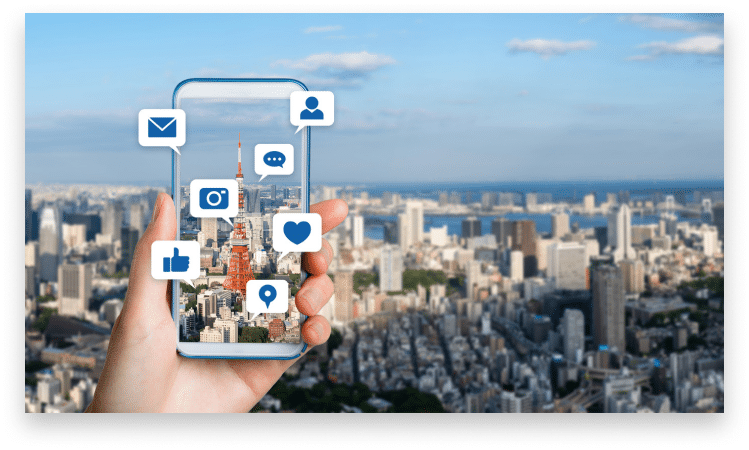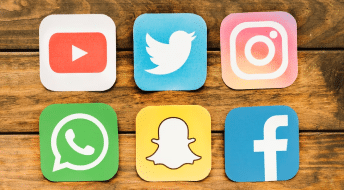Social Media & Depression/Anxiety
Cases related to social media depression and anxiety have increased over the past several years, and researchers believe social media algorithms and usage patterns may contribute to new or worsening mental health symptoms, particularly among vulnerable users. At Cutter Law, P.C., we help people affected by social media get the help and compensation they deserve so they can reclaim their lives and identities.
As people increasingly use social media, depression and anxiety are rising across the United States. Unfortunately, social media platforms such as Facebook and Instagram have developed algorithms designed to keep users coming back for more, and the content available isn’t always healthy.
Too much of the wrong content can lead to loneliness, disconnection, and feelings of inadequacy. Yet social media companies continue to deliver addicting content despite its potential to damage users’ mental health.
If you or someone you love is experiencing depression and anxiety due to social media, our experienced attorneys can help. Cutter Law will explain your rights and assist you in pursuing justice for damage done.
Quick Links
Social media, depression, and anxiety: What are the connections?
Social media use is growing across the United States. In January 2022, there were 270.1 million social media users nationwide — nearly 81 percent of the total population. In the previous year alone, social media users increased by 30 million.
Depression and anxiety are also increasing. Since the onset of the COVID-19 pandemic, psychologists have seen 79 percent more patients with anxiety disorders and 66 percent more with depressive disorders.
Many researchers feel social media habits contribute to depressive and anxious symptoms.
How does social media cause depression and anxiety?
Depression and anxiety are complex mental illnesses that cannot have a single behavioral cause. However, if someone is prone to these conditions, activities like social media use can tip the scales.
One major contributor is social comparison — the habit of comparing your life to what others post on social media. For example, if your friend posts pictures of a Saturday night out with friends, you might wonder why you aren’t doing the same. You may feel dissatisfied with your life and worry if your friends genuinely like you.
Those thought processes often lead to depression, anxiety, and loneliness. It’s a vicious cycle that can turn you to social media to connect — but that connection is inherently unsatisfying.
How does social media affect depression and anxiety?
Mitch Prinstein, chief science officer for the American Psychological Association, referred to social media in an NBC News interview as “empty calories.” You will likely feel let down if you try to meet your social and emotional needs through social media.
If you’re already prone to depression and anxiety, this letdown may worsen your symptoms, especially if you’re prone to social comparison.
A connection also exists between addiction to social media and anxiety. Worries about how others perceive you can lead to increased nervousness about online interactions. Those worries often lead to a vicious cycle of problematic interactions. Anxious users increase their time spent on social media to “fix” how people see them.
Social Media and Self-Identity
People feel better and more emotionally healthy when they present their authentic selves. However, social media doesn’t always make it feel safe to do so.
Social media users get positive feedback through likes, comments, and followers. The more vulnerable we are to the need for approval, the more tempting it is to construct an identity that will earn acceptance.

What does the research say?
In one survey of young adults aged 19 to 32, those who spent the most time on social media had a 66 percent higher rate of depression than the least frequent users.
According to research published in the Journal of the American Medical Association, the findings also hold up for older adults. This 2021 study surveyed over 8,000 adults aged 18 and older, the average age being 55. Results connected more use of social media with higher rates of depression.
TikTok and Snapchat, most popular with users under 30, led to higher depression rates in users 35 or older. Facebook correlated more with depression in users under 30.
In a 2022 study published in Cyberpsychology, Behavior, and Social Networking, researchers found that a one-week break from social media can significantly improve users’ well-being scores and reduce depression and anxiety symptoms. The effect was noticeable with an overall social media pause and a break from using a single platform.
Who is most at risk?
Internal documents from Facebook, now a Meta company, show the profound effect of social media on teen girls’ self-image. For example, in 2020, 32 percent of teen girls said Instagram exacerbated negative feelings about their bodies.
According to research published in Clinical Psychological Science, young people are increasingly susceptible when social media replaces emotionally intensive in-person interactions. Conversely, adolescents with strong in-person relationships are less likely to develop new or worsening depression or anxiety because of social media.
Those with a tendency toward depression, anxiety, or addiction are also particularly at risk, according to a study in Psychology of Addictive Behaviors.
Signs of Anxiety and Depression in Social Media Users

Symptoms of depression include:
- Feeling sad or worried all or most of the time
- Avoiding activities you used to enjoy
- Being irritable or restless
- Feeling a lack of energy
- Feeling worthless
- Having thoughts of death or self-harm

- Having worries that are difficult or impossible to control
- Feeling your heart pounding or racing
- Having aches or pains with no apparent physical cause
- Avoiding situations that exacerbate symptoms
Resources for Managing Problematic Social Media Use

For immediate help, the 988 Suicide & Crisis Lifeline is a national network of local crisis centers that you can reach 24/7 simply by dialing or texting 988. You can reach someone who will listen and help you gain access to mental health professionals.
If you have experienced significant disruption to your life or mental health due to social media content, legal help may also be available.
Legal Options
Victims and their families may have legal recourse against social media for its effects on anxiety and depression.
One California family has already filed a lawsuit on behalf of their daughter. The family believes the girl’s Instagram use led to her hospitalization for anxiety, depression, self-harm, and disordered eating. Her parents blame Instagram’s algorithm, which pointed her toward content that promotes anorexia while encouraging social media addiction.
This lawsuit is one of several that have arisen against social media algorithms and their effects on mental health. These social media lawsuits accuse algorithms of being defective products that encourage harmful addictive use.
If you or a loved one are experiencing negative mental impacts from social media use, our skilled California personal injury attorneys are here to help you understand your legal options and hold social media companies accountable.
Get Legal Help Today
Our experienced lawyers at Cutter Law are your advocates when facing big social media corporations whose goal is to capture your attention and your money. We’re here to help you hold them accountable.
Contact the experts at Cutter Law, P.C. for your free consultation. There’s no obligation and no fee unless we win.

FAQ
Can social media cause social anxiety?
Social media use can increase feelings of concern for what others think. The more you use social media, the more vulnerable you are to these feelings. If you use social media too much, self-consciousness may develop into social anxiety.
Does quitting social media help with depression?
Eliminating or cutting back on social media use may help you feel less depressed and more connected to your in-person social circles.
How do I fix social media anxiety?
Be aware of your social media use and when you feel the most anxiety. If specific platforms or interactions make you anxious, consider avoiding those situations.
Schedule A Free Case Review
Our Office Locations
Sacramento Office
401 Watt Avenue Suite 100
Sacramento, CA 95864
Phone: 916-290-9400
Oakland Office
Cutter Law P.C.
1999 Harrison Street Suite 1400
Oakland, CA 94612


